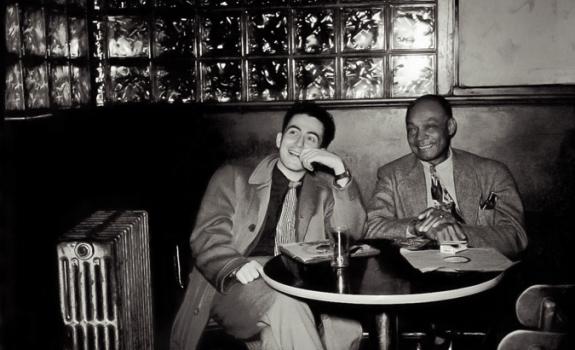
 Nat Hentoff has always been a man wise beyond his years; a pioneer in musical journalism, his jazz reviews changed the way the genre was perceived by white audiences by giving it artistic value that made them embrace it as perhaps the ultimate American artform. An outspoken libertarian and defender of the First Amendment and human rights, his extreme views on abortion and his defense of the Iraq invasion have put him in a strange limbo that both spare him and propel him right into the throes of bipartisanship. He might be one of the most fascinating figures in American journalism which is why it makes sense to have him as the subject of “The Pleasures of Being Out of Step”.
Nat Hentoff has always been a man wise beyond his years; a pioneer in musical journalism, his jazz reviews changed the way the genre was perceived by white audiences by giving it artistic value that made them embrace it as perhaps the ultimate American artform. An outspoken libertarian and defender of the First Amendment and human rights, his extreme views on abortion and his defense of the Iraq invasion have put him in a strange limbo that both spare him and propel him right into the throes of bipartisanship. He might be one of the most fascinating figures in American journalism which is why it makes sense to have him as the subject of “The Pleasures of Being Out of Step”.
This documentary directed by David L. Lewis tries its best to capture the essence of what makes Hentoff such a key character in some of America’s most revolutionary cultural and social movements. Relying on a structure as unpredictable as the music Hentoff praised, the film takes us back and forth in time focusing on important moments in the prolific writer’s career. From his thoughts on how to become a writer (“bylines make you sound like an authority”) to his view of his hometown (“the most anti semitic city in the country”) to his religious denomination (“I’m a Jewish atheist”) listening to the controversial Hentoff speak about himself might be the closest the film comes to achieving pure pleasure, the other interviews (because of the editing) come off as either too reverential or too blasé.
“There’s only so much identity you can cut off from a publication” says The Village Voice former editor Tony Ortega, about making the hard decision to fire Hentoff after he had worked in the publication for five decades, but it never becomes clear if the filmmakers are condemning, satirizing or defending him. This unclear sense of purpose (even though the film suggests it wants to remind us of the importance of print journalism) often makes the film feel less like it’s riffing and more like it’s lost. The filmmaker’s intention is admirable, because the editing is supposed to emulate the improvisational techniques used in jazz, but more often than not it loses viewers’ attention and fails to make coherent connections, when ironically a more traditional structure would’ve been more effective in telling the story of a man whose life has been dedicated to break out of the mold.